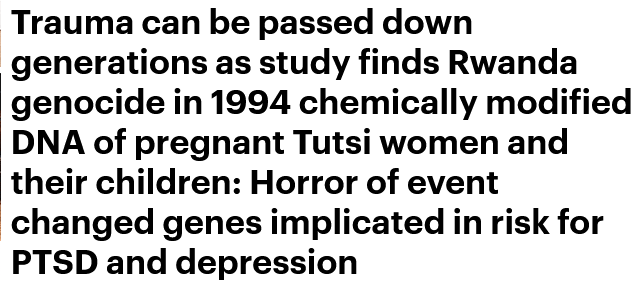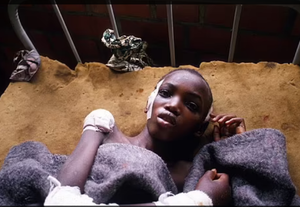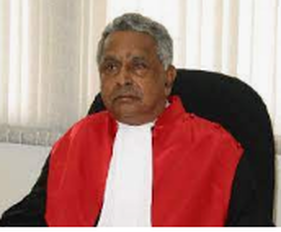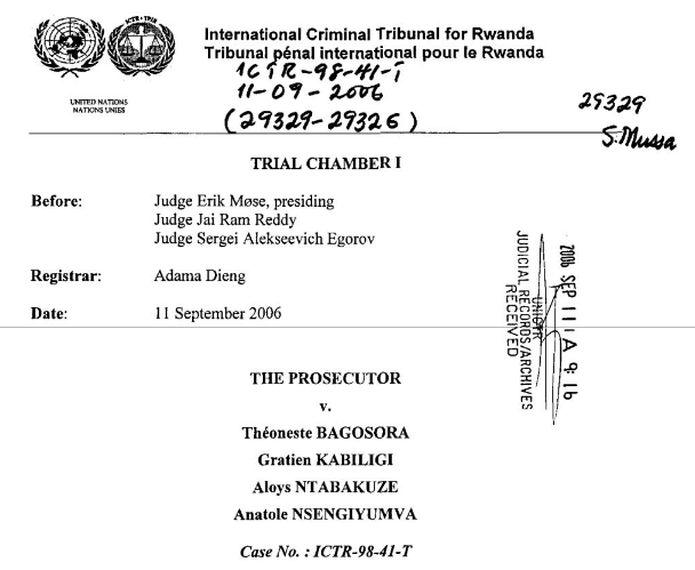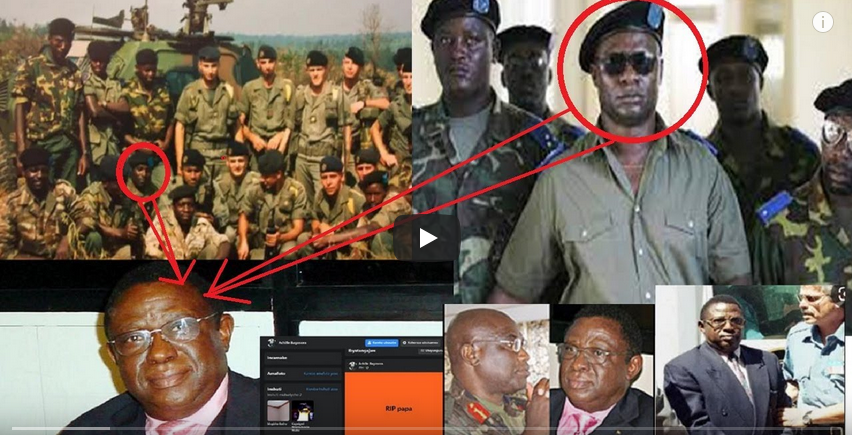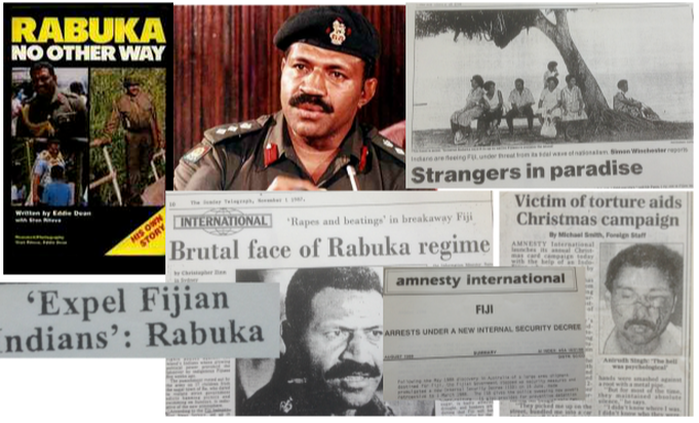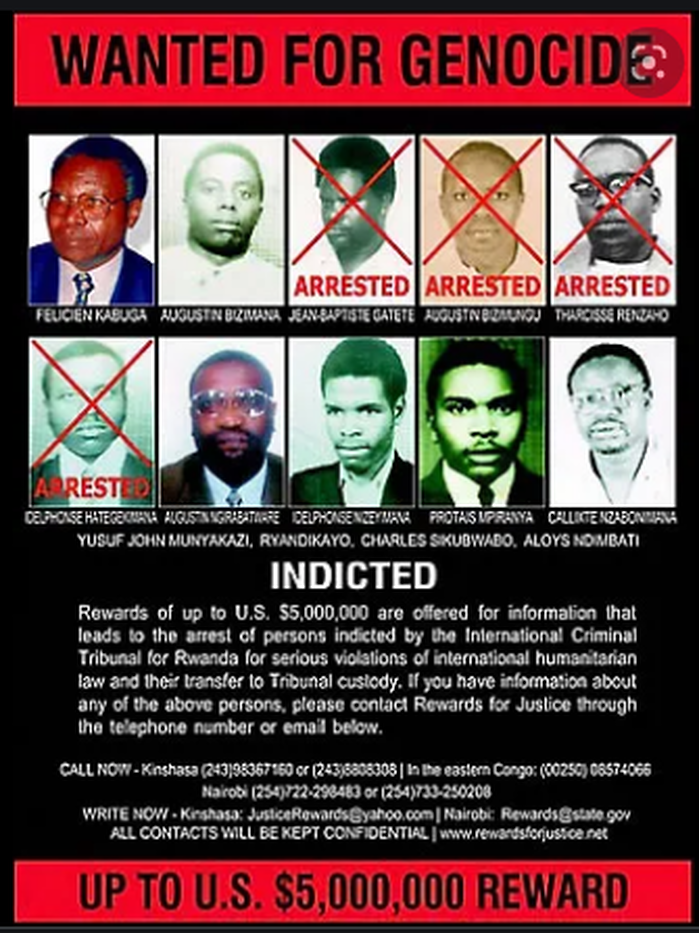Fijileaks: HEART OF THE MATTER
Although the horrific event in Rwanda may be over, the terror of the genocide lives on in the DNA of Tutsis victims and their offspring. We need a similar study for Indo-Fijian pregnant women from 1987 to bring Rabuka - self-confessed RACIST and Bogus Nationalist - to JUSTICE. For too long NFP has shielded Sitiveni Rabuka for his Racial CRIMES.
In their estimation, he is not the dreaded RAVANA but RAMA for their political fortunes at the election against acting Prime Minister Khaiyum
The latest study on Rwandan pregnant women also wants to shine a light on the horror that happened 28 years ago in Africa
| Over the course of 100 days, starting on April 6, 1994, nearly 800,000 ethnic Tutsis were murdered by Hutu extremists as they tried to eradicate the minority group in Rwanda. Although the horrific event may be over, the terror of the genocide lives on in the DNA of Tutsis victims and their offspring. A team of scientists from the University of South Florida found chemical modifications in genes linked to mental disorders in women who were pregnant and the children they were carrying at the time of the genocide. |
| These findings suggest that, unlike gene mutations, these chemical 'epigenetic' modifications can have a rapid response to trauma across generations. The study also provides more evidence to the theory, which is known as intergenerational trauma, that trauma can be inherited because there are genetic changes in a person’s DNA. However, the changes do not damage genes, but alter how they function. |
Professors Monica Uddin said in a statement: 'Epigenetics refers to stable, but reversible, chemical modifications made to DNA that help to control a gene's function.
'These can happen in a shorter time frame than is needed for changes to the underlying DNA sequence of genes. Our study found that prenatal genocide exposure was associated with an epigenetic pattern suggestive of reduced gene function in offspring.'
The Rwanda genocide started when President Habarimana's plane was shot down over the capital Kikgali.
His death brought years of ethnic tensions to the surface, with extremist Hutus starting a planned campaign of extermination against the minority Tutsis.
The killings only stopped when the Tutsi-controlled Rwandan Patriotic Front seized control and put Paul Kagame into power.
By the end, about 70 per cent of the Tutsi people had been killed.
Uddin and her colleague Derek Wildman began their study to help provide scientific tools needed to help address mental health issues of the genocide's survivors.
Along with the help of Clarisse Musanabaganwa, a visiting scholar from the University of Rwanda and her colleagues, the team studied DNA from blood samples from 59 people.
Participants included 33 mothers (20 exposed, 13 unexposed) and 26 offspring (16 exposed, 10 unexposed).
Exposure is defined as being impacted by genocide-related trauma, such as rape or evading capture, witnessing murder or serious attack with a weapon and seeing dead and mutilated bodies.
'The Rwandan people who are in this study and community as a whole really want to know what happened to them because there's a lot of PTSD and other mental health disorders in Rwanda and people want answers as to why they're experiencing these feelings and having these issues,' Wildman said.
The team's work is just the latest to provide evidence for intergenerational trauma, as it has been found among Holocaust survivors and their offspring and average people who have experienced abuse, poverty and other traumatic events.
However, the latest study also wants to shine a light on the horror that happened 28 years ago in Africa.
The majority of Rwandans are ethic Hutus, but the country was ruled by the Tutsi minority for decades until 1959 when the Tutsi monarchy was overthrown.
In 1990, a Tutsi rebel group called the Rwandan Patriotic Front (RPF) that had formed in Uganda invaded the country.
However, the fragile peace lasted only until the night of April 6, 1994, when a plane carrying Habyarimana and Cyprien Ntaryamira, president of Burundi and a Hutu, was shot down.
The Hutus blamed the RPF for the attack and enacted a 'final solution' to rid the country of Tutsis, with militias handed lists of names and told to kill them.
Neighbors turned on each other, husbands murdered their Tutsi wives, and there were even accounts of priests and nuns killing those who sought shelter in churches.
The Tutsi people were slaughtered by supporters of the Hutu government, who claimed to be ‘weeding out the cockroaches’.
Men, women and children were felled by machetes, grenades and bullets in their homes and on the streets.
'These can happen in a shorter time frame than is needed for changes to the underlying DNA sequence of genes. Our study found that prenatal genocide exposure was associated with an epigenetic pattern suggestive of reduced gene function in offspring.'
The Rwanda genocide started when President Habarimana's plane was shot down over the capital Kikgali.
His death brought years of ethnic tensions to the surface, with extremist Hutus starting a planned campaign of extermination against the minority Tutsis.
The killings only stopped when the Tutsi-controlled Rwandan Patriotic Front seized control and put Paul Kagame into power.
By the end, about 70 per cent of the Tutsi people had been killed.
Uddin and her colleague Derek Wildman began their study to help provide scientific tools needed to help address mental health issues of the genocide's survivors.
Along with the help of Clarisse Musanabaganwa, a visiting scholar from the University of Rwanda and her colleagues, the team studied DNA from blood samples from 59 people.
Participants included 33 mothers (20 exposed, 13 unexposed) and 26 offspring (16 exposed, 10 unexposed).
Exposure is defined as being impacted by genocide-related trauma, such as rape or evading capture, witnessing murder or serious attack with a weapon and seeing dead and mutilated bodies.
'The Rwandan people who are in this study and community as a whole really want to know what happened to them because there's a lot of PTSD and other mental health disorders in Rwanda and people want answers as to why they're experiencing these feelings and having these issues,' Wildman said.
The team's work is just the latest to provide evidence for intergenerational trauma, as it has been found among Holocaust survivors and their offspring and average people who have experienced abuse, poverty and other traumatic events.
However, the latest study also wants to shine a light on the horror that happened 28 years ago in Africa.
The majority of Rwandans are ethic Hutus, but the country was ruled by the Tutsi minority for decades until 1959 when the Tutsi monarchy was overthrown.
In 1990, a Tutsi rebel group called the Rwandan Patriotic Front (RPF) that had formed in Uganda invaded the country.
However, the fragile peace lasted only until the night of April 6, 1994, when a plane carrying Habyarimana and Cyprien Ntaryamira, president of Burundi and a Hutu, was shot down.
The Hutus blamed the RPF for the attack and enacted a 'final solution' to rid the country of Tutsis, with militias handed lists of names and told to kill them.
Neighbors turned on each other, husbands murdered their Tutsi wives, and there were even accounts of priests and nuns killing those who sought shelter in churches.
The Tutsi people were slaughtered by supporters of the Hutu government, who claimed to be ‘weeding out the cockroaches’.
Men, women and children were felled by machetes, grenades and bullets in their homes and on the streets.
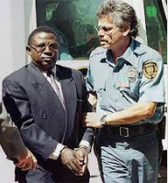 Colonel Bagosora on way to be
Colonel Bagosora on way to be tried by Judge Jai Ram Reddy
A former Rwandan army colonel convicted for his role in the massacre of some 800,000 people in the 1994 genocide has died in Mali, where he was in prison. Théoneste Bagosora, 80, was a senior figure in Rwanda's ministry of defence at the time of the killings.
A UN-backed criminal tribunal sentenced him to life in prison, but this was later reduced to 35 years. His son Achille told the BBC he died at a hospital in Bamako, where he was being treated for heart issues.
In 2008, the International Criminal Tribunal for Rwanda found him guilty of crimes against humanity, and for orchestrating the murder of several political figures, including Prime Minister Agathe Uwilingiyimana.
A UN-backed criminal tribunal sentenced him to life in prison, but this was later reduced to 35 years. His son Achille told the BBC he died at a hospital in Bamako, where he was being treated for heart issues.
In 2008, the International Criminal Tribunal for Rwanda found him guilty of crimes against humanity, and for orchestrating the murder of several political figures, including Prime Minister Agathe Uwilingiyimana.

